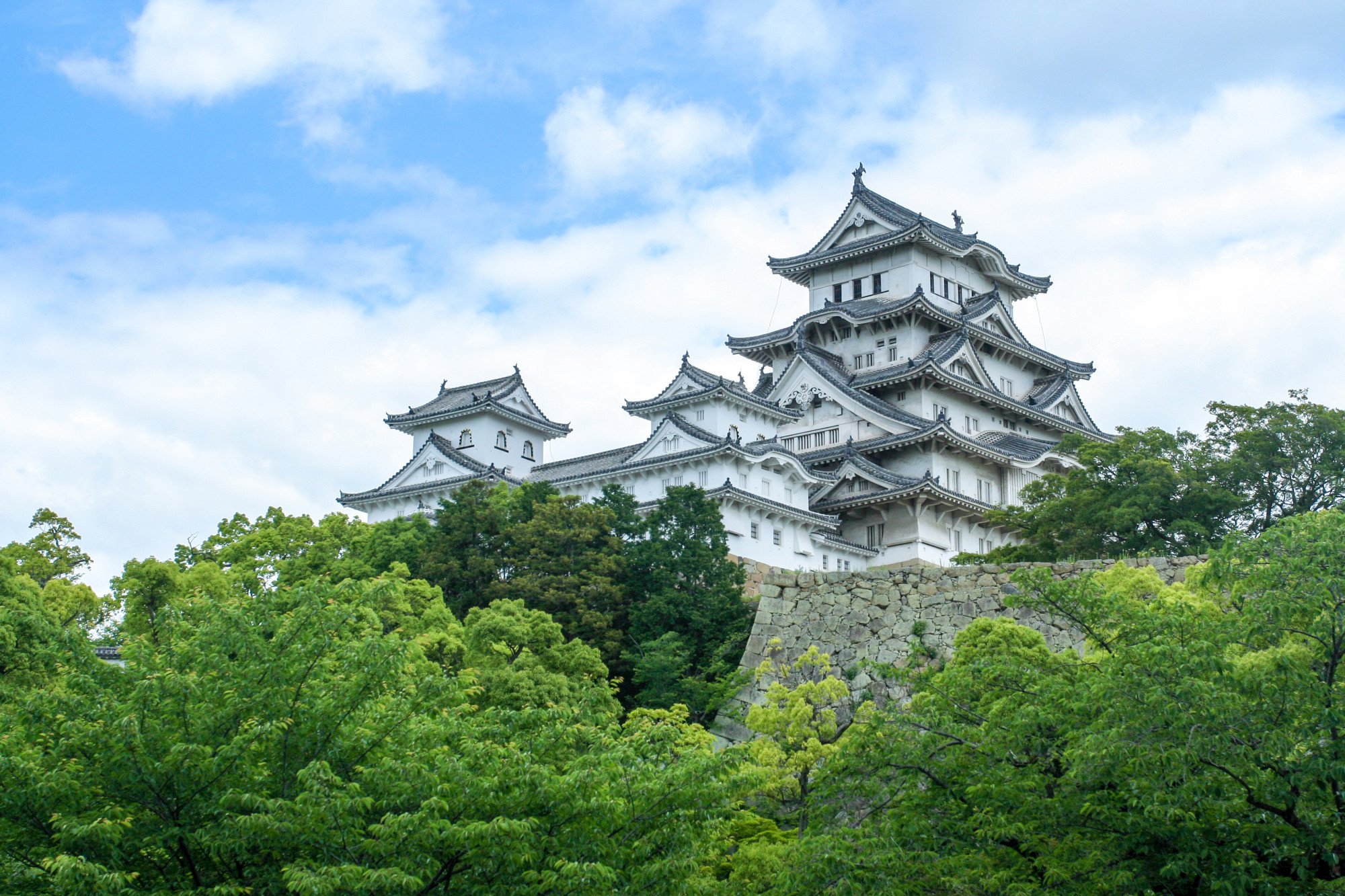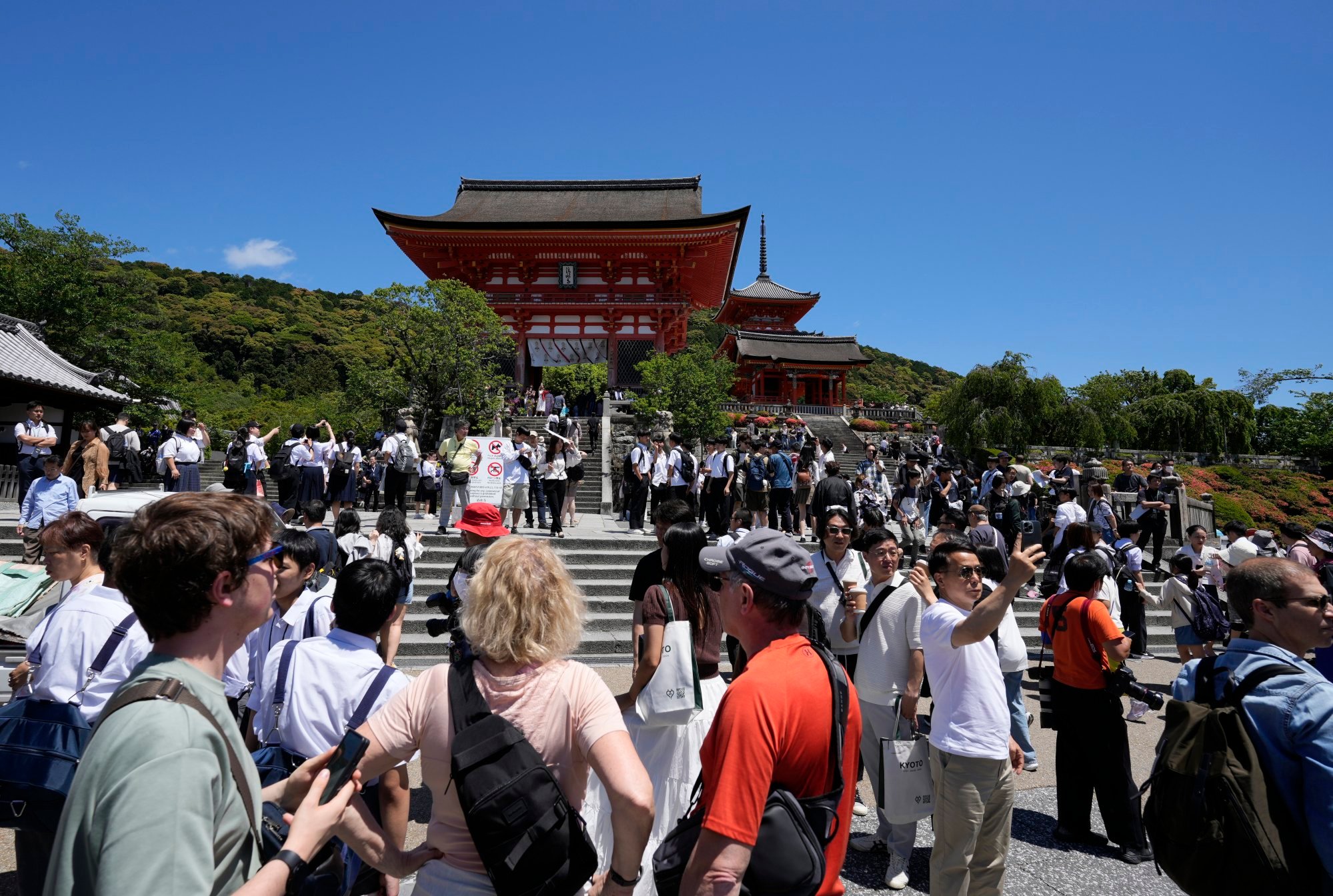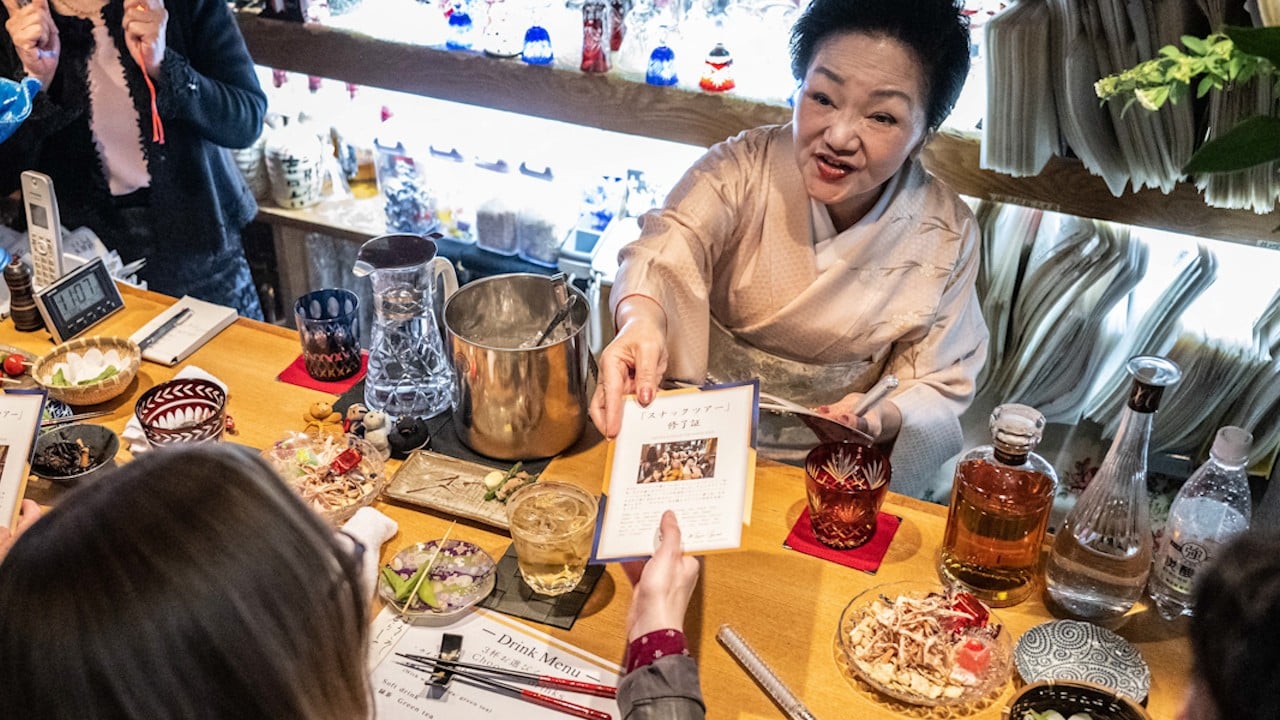
In Japan, outcry over ‘xenophobic’ plan to charge foreigners more for Himeji Castle entry
- Critics call the push to charge foreigners six times more to visit 400-year-old Himeji Castle a ‘third-world-country move’
Some Japanese voiced support for the move, even arguing it should be expanded to other tourist spots, while critics said it would be “xenophobic” and could hurt the country’s image.
Addressing a convention in the city on Sunday, Mayor Hideyasu Kiyomoto said he would like to raise the cost of entry to the Unesco World Heritage site from the present 1,000 yen (US$6.35) for anyone aged 18 or older.
“I’m thinking of raising the fee,” Kiyomoto said. “I would like foreign people to pay US$30 or so, and then Himeji residents to pay about US$5.”
The mayor added that the money would be reinvested in the tourism sector, going towards repairs to the 400-year-old landmark – known as Himeji or White Heron Castle – and for measures to reduce overtourism in Hyogo prefecture. An estimated 1.48 million people visited the castle last year, some 30 per cent of whom were foreign nationals.

The mayor’s comments were welcomed in some quarters, with online commentators suggesting that the weak yen had made Japan a cheap holiday destination and therefore foreign tourists could afford to pay more than locals.
Others, however, said the proposal would be difficult to implement and monitor, and was simply discriminatory. Some wondered how Japanese tourists would react if they were suddenly required to pay more on a foreign holiday because of the perception that Japan is a wealthy nation.
“This does not sound very fair, and it would be very hard to control,” said Masaru Takayama, president of Kyoto-based Spirit of Japan Travel.
After experiencing dual pricing himself in Central America some decades ago, “I thought it was discriminatory then and a very old-fashioned approach, so this is not a good look,” he said.
Instead of targeting foreigners with higher prices, Takayama said the castle’s management needed to “be more effective in controlling visitor numbers while still keeping the high quality of the experience”.
He suggested alternative ways of reducing congestion at the busiest times of the year, such as limiting numbers and introducing a “priority pass” system with premium pricing.
The mayor’s initiative has its supporters, however.
“I totally agree,” said one user, commenting on an article published by Fuji News Network. “The yen is weak, so why shouldn’t we be able to get more? Historical buildings overseas charge more for admission.”
Another went even further, saying the policy could be expanded nationwide, so that “eventually, all services should be four times higher for foreign tourists. There is also the benefit that Japan will become a country where low-quality foreigners can’t easily come”.
Others were strongly opposed, with some calling dual pricing a common tactic in developing nations and saying that adopting a similar system in Japan would relegate the nation in travellers’ eyes.
“I am against raising the price only for foreigners as it leads to discrimination,” wrote one user. “It would be better to raise the price for all visitors first, and then give a discount to Japanese people who show ID.”
Criticism was stronger on the Japan Today website, with one message asking how this sort of policy is expected to help the government reach its target of 60 million foreign visitors by 2030. “[It] seems more like a third-world-country move to exploit foreigners rather than a logical move,” said another, adding: “It has a very strong xenophobic” feeling.

Ashley Harvey, a travel marketing analyst who has worked in Japan’s travel sector for more than 15 years, says many of the nation’s tourism hotspots are “largely underpriced” and there is clearly room to raise entry fees – but warns that singling out foreigners to pay more flies in the face of Japan’s much-touted omotenashi hospitality philosophy.
“This is a really good argument for dynamic pricing, or setting higher prices for the busiest times of the day at the busiest times of the year,” he told This Week in Asia. “In important historic places, children under the age of 18 could be allowed in for a minimal fee or even for free, subsidised by adult ticket prices.”
Harvey added that requiring visitors to provide evidence of nationality would slow entry procedures down, causing congestion and at least partly defeat the objective of higher fees to reduce overtourism, while there could also be conflict over permanent foreign residents of Japan being classified as foreign tourists.
“It has become easy to blame foreign tourists for the problems of overcrowding, but I see that as governors, local tourism authorities and destination management organisations deflecting their own failures,” he said.
“These are the people and organisations that have failed to manage their destinations adequately, and they are now blaming the symptoms of that mismanagement – large numbers of tourists – instead of the cause, which is their failures.”
While Harvey said he thought the plan was “poorly thought out”, reinvesting the revenue into tourism was “at least positive”.


